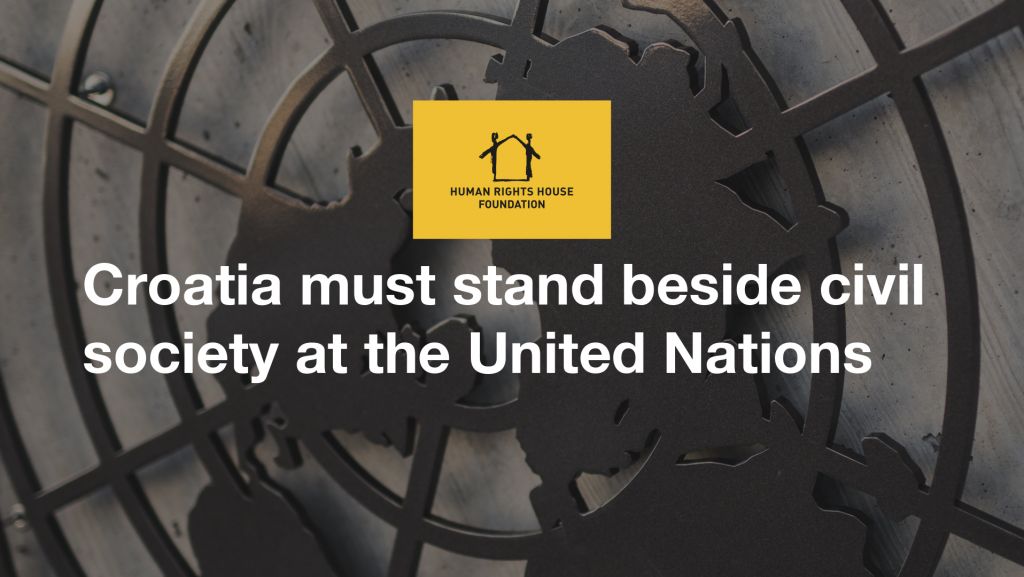“As Croatia takes up its post at the Human Rights Council, we are extremely concerned at the sudden and undebated dramatic change in priorities that Croatia will promote as a member of the Human Rights Council,” commented Sanja Sarnavka, Croatian human rights defender and part of Human Rights House Zagreb.
The forerunner of the ultraconservative movement in Croatia has been named as the Minister’s special advisor in charge of human rights, and Croatia has sent a list of priorities to the European Union for United Nations’ human rights work, including: protection of Christians in Muslim countries, protection of traditional forms of family as a union of men and women, and a reductionist definition of reproductive and sexual rights which do not include the right to safe abortion.
In his first intervention at the Human Rights Council as member, the Croatian Deputy Prime Minister and Minister of Foreign and European Affairs, Ivo Stier, underlined that the country stands for comprehensive protection of human rights at national and international levels. He further underlined that Croatia believes that human rights are universal and indivisible, inclusive and interdependent. Focusing on the right to freedom of religion, Croatia announced it would side with Russia and the Holy See in furthering this agenda at the Council, and while underlining that Croatia promotes the “decriminalisation of homosexuality in all United Nations Member States,” Minister Stier added that Croatia would support initiatives to protect the family as the natural basis of life. He then added Croatia’s agenda at the Council would aim at the “protection of human life at all stages.”
“These policies, and the statement by the Minister, go against existing legislation and policies in Croatia, and were produced and issued without any consultations in the Parliament and the Government, not to mention a public debate. Croatia’s membership of the Human Rights Council should be used to promote women’s rights and gender equality, not go back on more than 20 years of progress at the national level,” commented Sanja Sarnavka.
Croatia was elected to the Human Rights Council on 28 October 2016 with 114 votes. The Russian Federation lost this seat to Croatia, only receiving the support of 112 UN member States. “Croatia in this regard has a duty to stand beside civil society at the United Nations. Croatia was elected to defeat Russia’s devastating agenda for human rights, promoting divisibility and attacking the universality of rights at the Human Rights Council, and pushing for the recognition of traditional values. We wait for Croatia to clarify its alliances, clearly reject any form of ‘traditional values, and stand beside civil society,” commented Florian Irminger, Head of Advocacy at the Human Rights House Foundation.
To side with civil society at the United Nations, Croatia should consult Croatian civil society on its international priorities, and bring national policies in line with Croatia’s international human rights obligations and commitments, thereby bridging the gap between Croatia’s activities in Geneva and its policies in Zagreb. “It is therefore regrettable that, for its first intervention as a Council member, the Croatian foreign ministry did not consult Croatian civil society at home and did not have a single word of support for human rights defenders,” added Florian Irminger.





